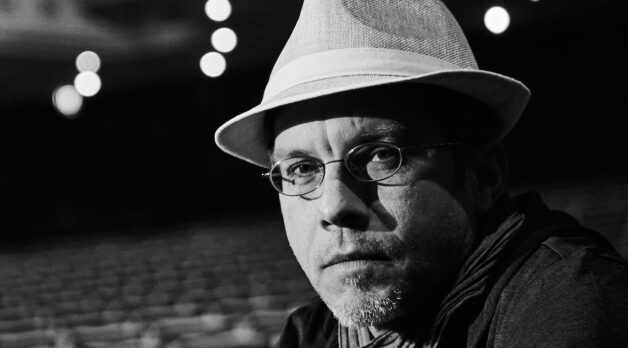Craig Quintero
 Craig Quintero
Craig Quintero

As virtual reality has developed over the past several years, various arguments have been made on its behalf. The most infamous is that virtual reality is a kind of “empathy machine,” allowing a viewer direct access to the experience of others. Others view virtual reality as the new frontier of gaming. Then, there are documentarians for whom the VR concept of “presence”—a viewer’s ability to feel themselves in a place they are not—has an almost pedagogical function, allowing them the experience of being in different cultures or within historical moments.
The mysterious, unsettling work of Craig Quintero and the Taipei-based Riverbed Theatre Company, runs counter to these formulations. Quintero is less interested in character, story and narrative than in formal considerations, liminal emotional states and questions about perspective that he’s imported from the group’s experimental site-specific theater. Quintero, Riverbed’s artistic director, describes the creative questions driving his company’s exploration of virtual reality: “In 360 VR, how do we address the performer/audience relationship and create a space in which the audience is not being told a single story or narrative? How do we create an experience in which the audience is encouraged to embrace the unknown?”
In Quintero and Riverbed’s two VR works so far, All that Remains (2022) and Over the Rainbow (2023), Quintero attempts to defamiliarize the familiar, “disorienting the audience in a way that helps them get lost in the work. Instead of starting with a theme or idea, we’re helping the audience let go of their everyday approach to life and open them up to the infinite number of possibilities” If that all sounds somewhat abstract, Quintero’s experiences are anything but. With an Oculus headset strapped on, the viewer in Over the Rainbow, which premiered at the 2023 Tribeca Festival before traveling to this month’s Venice Immersive, makes intimate eye contact with performers who move close. Encounters contain whiffs of eroticism; environments range from gallery spaces to sinister crawlspaces; and in the work’s finale, the viewer is surrounded by a slow-motion chorus line of Fosse-style dancers.
“In traditional films, we are accustomed to moments in which the actor looks at the camera, as if they’re addressing the audience, but in those moments, I don’t feel the full connection,” says Quintero. “In VR, there’s something really intense that comes from seeing and being seen at the same time. There’s an implication that we’re not just passive viewers.”
Born in Montana, Quintero studied theater as an undergraduate at Tufts University, focusing on the works of Robert Wilson, Antonin Artaud and Jerzy Grotowski. He traveled to Taiwan in 1992 to research Chinese opera and became immersed in the country’s experimental theater scene. Quintero noted that at the time it was the end of martial law, and theater artists were blurring the boundaries between artists and activists as they actively engaged in political protests. Quintero decided to research these intersections between theater and social movements in Taiwan for his dissertation in Performance Studies at Northwestern University. While conducting field research in Taiwan in 1998, Quintero founded Riverbed Theatre, and over the past 25 years, he has directed over 60 productions with the company.
In 2011, he launched his Just for You performance series, staging ten productions for an audience of one in hotels, tea houses, galleries, and museums across Taiwan. These “intimate sensory encounters” for single viewers blurred the boundaries between the spectator and the spectacle, creating moments of direct connection. The financial unsustainability of staging large-scale immersive works for single ticket-buyers prompted Quintero to explore VR as a new artistic medium.
Quintero, a professor in Theatre, Dance, and Performance Studies at Iowa’s Grinnell College, is working on completing the final chapter of his Just for You trilogy that will premiere in 2024. Quintero is also collaborating with PHI Studio in Montreal on developing a production combining VR with live performance for 12 viewers at a time. He says, “We are experimenting with the unique potential of this integration of VR and live performance so that we can combine the sensory interactions of live theater with the magical possibilities of virtual reality, freeing ourselves from the limitations of the real world and embracing the unknown.”—Scott Macaulay/Image: Chen You-Wei
